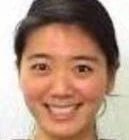
With the Indian economy poised to be among the fastest growing economies in the world, there is great demand for world-class engineers to drive domestic value-addition, innovation and make the economy even more competitive globally. In this context, the Indian government’s Technical/Engineering Education Quality Improvement Project (TEQIP), supported by the World Bank, has been working with engineering colleges across the country to make them more responsive to a rapidly changing technical environment.
Among a range of initiatives targeted at improving student learning, the Project’s second phase, TEQIP II, offered scholarships under a summer internship program that sends students to Canada to conduct research in R&D management, professional skills development, and more. Top-ranking students in TEQIP-supported institutes were funded by the Indian government's Ministry of Human Resource Development.
I had the great opportunity to meet with some of the students who received the scholarships a few months ago. Here’s what I learned:
To be competitive in a global world, it is important to understand other cultures
All the students I met had learned not just from the research work they were doing, but also by engaging with a different culture and making new friends. Ajay Krishnan, a Mitacs Globalink research intern at the University of Toronto, said: “The summer I spent in Canada toughened me up, broadened my academic and personal horizons, and exposed me to a truly multicultural environment. I am so glad that I decided to apply for the internship.”
Autonomy and learning-by-doing fuel innovation
All interns spent the summer working on projects close to their heart with experts in the field guiding them. They were treated as serious researchers, and given the freedom to define the problems they wanted to solve. As Manasa Bhat, a Mitacs Globalink research intern at the University of Manitoba, Winnipeg, worked on an artificial sensing system setup in a ‘smart shoe’. It used an arrangement of sensors and a microcontroller connected to a computerized distributed system through a smart phone.
Ajay’s project, titled Ultrastrong, Ultralight Nanocrystalline Hybrid Materials for Future Aerospace Technologies, was concerned with understanding the processes of fracture and failure of aluminum alloys via molecular dynamics simulations, a method used in computational modeling.
“By developing incredibly accurate models, insights into the behavior of materials can be obtained with great accuracy. This is crucial as it cuts down on the number of physical experiments needed and saves on the most expensive commodity in research: time,” said Ajay.
Go girls!
In a field dominated by male engineers, I was thrilled to find that a number of female students had been awarded internships. In fact, most of the students we spoke with were female students.
Stepping out of their comfort zone helps build students’ confidence
For Manasa, TEQIP II provided the funds for her to research her dream topics, and importantly, freed her mind of financial worries. Further, by leaving home to study in a foreign country, she learned a lot.
She said: “The experience has made me more confident in tackling challenges and I have also become more independent. Ultimately I want to contribute in the creation of innovative products useful to the society.”
Shruthi Puranik, a research assistant in the Software Analysis and Intelligence Lab (SAIL) of Queen’s University, Kingston, echoed a similar sentiment: “This experience was really instrumental in my growth, not only at the professional level, but also at the personal level.”
Ultimately, these experiences have taught these students that no challenge is too difficult to tackle.
Find out more about World Bank Group education on Twitter and Flipboard.


Join the Conversation